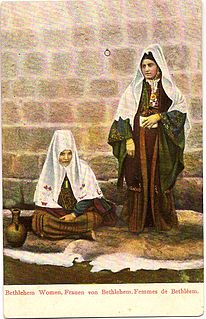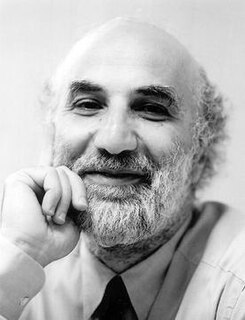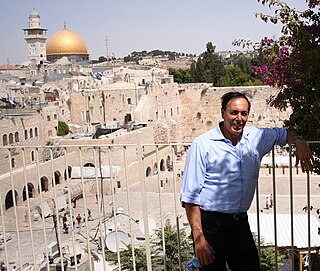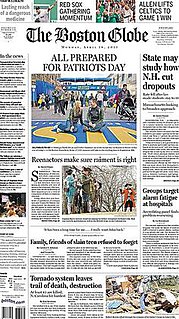Telecommunications in Iraq include radio, television, fixed and mobile telephones, and the Internet as well as the postal system.

Kurdistan or Greater Kurdistan is a roughly defined geo-cultural historical region wherein the Kurdish people form a prominent majority population and Kurdish culture, languages, and national identity have historically been based. Kurdistan roughly encompasses the northwestern Zagros and the eastern Taurus mountain ranges. The territory corresponds to Kurdish irredentist claims.

Arab Christians are Arabs of the Christian faith. Many are descended from ancient Arab Christian clans that did not convert to Islam, such as the Kahlani Qahtanite tribes of Yemen who settled in Transjordan and Syria, as well as Arabized Christians, such as Melkites and Antiochian Greek Christians. Arab Christians, forming Greek Orthodox and Greek Catholic communities, are estimated to be 520,000–703,000 in Syria, 221,000 in Jordan, 134,130 in Israel and around 50,000 in Palestine. There is also a sizable Arab Christian Orthodox community in Lebanon and marginal communities in Iraq, Turkey and Egypt. Emigrants from Arab Christian communities make up a significant proportion of the Middle Eastern diaspora, with sizable population concentrations across the Americas, most notably in Argentina, Brazil, Chile, Mexico, Venezuela, Colombia, and the US.

Fouad A. Ajami, was a MacArthur Fellowship winning, Lebanese-born of Shiite Muslim ancestry, American university professor and writer on Middle Eastern issues. He was a senior fellow at Stanford University's Hoover Institution.

Sami Moubayed is a historian and writer, best known for his works on the modern history of Damascus from the late Ottoman period until creation of the Syrian-Egyptian union republic in 1958. In April 2017, he co-founded The Damascus History Foundation, an NGO aimed at preserving the archives of the Old City, threatened with extinction because of age, poor preservation, or neglect, becoming its founding chairman.
Adel Alexander Darwish is a Westminster-based British political journalist, a veteran Fleet Street reporter, author, historian, broadcaster, and political commentator. Darwish is currently a parliament lobby correspondent based at the Press Gallery of the House of Commons, the Palace of Westminster, specialising in foreign affairs, especially Middle Eastern politics; London University Graduate/Post Graduate 1965/1966–1967.

Alon Ben-Meir is an American expert on Middle East politics and affairs, specializing in peace negotiations between Israel and the Arab states. For the past twenty five years, Ben-Meir has been directly involved in various Track II diplomatic negotiations and is a staunch advocate of the Arab Peace Initiative. He operates regularly as a liaison between Arab, Turkish, and Israeli officials. Also, Ben-Meir serves as senior fellow at New York University's Center for Global Affairs where he has taught courses on the Middle East and international negotiations for 18 years, and he is the Middle East Project Director at the World Policy Institute. He hosts "Global Leaders: Conversations with Alon Ben-Meir," a series of debates and conversations with top policy-makers around the world at NYU. He also regularly holds briefings at the US State Department for international visitors.

Refugees of Iraq are Iraqi nationals who have fled Iraq due to war or persecution. Throughout the past 30 years, there have been a growing number of refugees fleeing Iraq and settling throughout the world, peaking recently with the latest Iraq War. Precipitated by a series of conflicts including the Kurdish rebellions during the Iran–Iraq War, Iraq's Invasion of Kuwait (1990) and the Gulf War (1991), the subsequent sanctions against Iraq, and culminating in the violence during and after the American-led invasion and occupation of Iraq, millions have been forced by insecurity to flee their homes in Iraq. Unlike most refugees, Iraqi refugees have established themselves in urban areas in other countries rather than in refugee camps. In April 2007, there was an estimate of over 4 million Iraqi refugees around the world, including 1.9 million in Iraq, 2 million in neighboring Middle East countries, and around 200,000 in countries outside the Middle East. The United Nations High Commissioner for Refugees (UNHCR) has led the humanitarian efforts for Iraqi refugees. The Iraqi displacement of several million is the largest in the Middle East, and is much larger than the number of Palestinians who were displaced in 1948 during the creation of the state of Israel.
ACTED, formerly 'Agency for Technical Cooperation and Development', is a French humanitarian NGO established in 1993. It is a non-governmental, non-political and non-profit organization committed to supporting vulnerable populations around the world. ACTED’s teams work in 36 countries, responding to emergency situations, whilst also supporting rehabilitation and development. ACTED implements more than 450 projects a year reaching 8 million people, with a c. €200 million budget and more than 400 international staff and 4,300 national staff. It is the second largest French NGO after Médecins Sans Frontières. The headquarters are in Paris, France.
Kurds in the United States refers to people born in or residing in the United States of Kurdish origin.
Assyrians in Lebanon include migrants of Assyrian origin residing in Lebanon, as well as their descendants. Most of the Assyrians in Lebanon came as refugees from northern Iraq, one of the four locations of the indigenous Assyrian homeland areas which are part of today's northern Iraq, southeastern Turkey, northwestern Iran and, more recently, northeastern Syria. There are an estimated 40,000 to 80,000 Iraqi Assyrian refugees in Lebanon. The vast majority of them are undocumented, with a large number having been deported or put in prison. They belong to various denominations, including the Assyrian Church of the East, Chaldean Catholic Church, and Syriac Catholic Church. Three Assyrian/Syriac/Aramean parties are established in Lebanon, Shuraya party, Syriac Union Party, and Aramean Democratic Organization.
Three major religious groups originated in the Middle East. Smaller minority religions, such as the Bahá'í Faith, Druze, Nusairism, Manichaeism, Sabianism, Bábism, Yazidism, Mandaeism, Gnosticism, Yarsanism, Samaritanism, Shabakism, Ishikism, Ali-Illahism, Alevism, Yazdânism and Zoroastrianism are also present in the Middle East.

Iraqi–Turkish relations are foreign relations between Iraq and Turkey. From late 2011 relations between the two countries have undergone strained turbulence. The two countries share a close historical and cultural heritage.

Iraq–Syria relations are marked by long-shared cultural and political links, as well as former regional rivalry. The two countries took their present form after the Sykes–Picot Agreement to dismember the Ottoman Empire into British and French spheres of influence after World War I.
James A. Paul is a writer and non-profit executive who has worked throughout his career in the field of international relations and global policy.
Helena Cobban is a British writer and researcher on international relations, with special interests in the Middle East, the international system, and transitional justice. In March 2010, she founded a book-publishing company, Just World Books. In late 2015, she and some colleagues established a non-profit organization, Just World Educational, a 501c3 organization headquartered in Charlottesville, Virginia.
Salameh Nematt is a Jordanian journalist and analyst with over 25 years of experience in economic and political reporting, research and analysis of developments in the broader Middle East, Europe and the United States. He has worked extensively on Arab-Israeli political, economic, security and human rights issues, and has done in-depth reporting on conflicts throughout the Middle East, the Gulf, and North Africa.

Phyllis Bennis is an American writer, activist, and political commentator. Focusing mainly on issues related to the Middle East and the United Nations, she is a strong critic of Israel and the United States and a leading advocate of Palestinian rights.
The Arab Winter is a term for the resurgence of authoritarianism, dictatorships, and Islamic extremism evolving in the aftermath of the Arab Spring protests in Arab countries. The term "Arab Winter" refers to the events across Arab League countries in the Mid-East and North Africa, including the Syrian Civil War, the Iraqi insurgency and the following civil war, the Egyptian Crisis, the Libyan Crisis and the Crisis in Yemen. Events referred to as the Arab Winter include those in Egypt that led to the removal of Mohamed Morsi and the seizure of power by General Abdel Fattah el-Sisi in an anti-Muslim Brotherhood campaign.

Dr. Robert G. Rabil is Professor of Political Science at Florida Atlantic University. He received his doctorate in Near Eastern and Judaic Studies from Brandeis University. His area of studies and expertise include Political Islam, Salafism, Transnational and Revivalist Movements, Terrorism, US-Arab Relations, Arab-Israeli Conflict, U.S.-Muslim Relations, and Contemporary Middle East Politics. He is the author of dozens of articles in major academic and professional journals and magazines. His books have been peer-reviewed and highly commended. Dr. Rabil served as the Chief of Emergency for the Red Cross in Baabda district, Beirut during Lebanon’s civil war, and was project manager of the US State Department-funded Iraq Research and Documentation Project. Dr. Rabil was awarded the LLS Distinguished Professorship in Current Events, LLS Teaching in Excellence Award, and in May 2012 was conferred an honorary Doctorate in Humanities from Massachusetts College of Liberal Arts.












